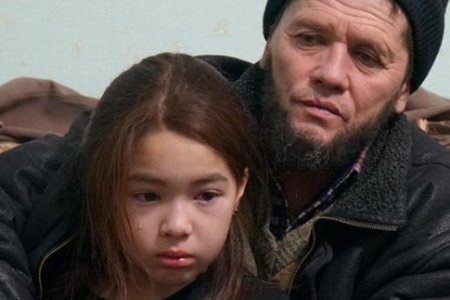
Russia’s worst conveyor belt of repression in occupied Crimea has sunk to a new low with six recognized Crimean Tatar political prisoners from Dzhankoi facing sentences of 17 and 17.5 years. Not only are none of the men accused of any recognizable crime, but even the charges are those virtually copy-pasted from ‘trial’ to ‘trial’ since 2015., with the sole difference lying in the huge sentences demanded in this case against all the men. As well as in the fact that Khalil Mambetov is already 69, making this a near certain death sentence.
The ’trial’ of the six Crimean Tatars is coming to an end at the Southern District Military Court in Rostov-on-Don, with the prosecutor claiming, on 7 April 2025, that the men’s ‘guilt’ had been proven. He demanded 17.5-year sentences against Khalil Mamebetov (b. 1955) and Refat Seidametov (b. 1969) and 17-year sentences against Osman Abdurazakov (b. 1984); Aider Asanov (b. 1963); Ekrem Krosh (b. 1985); and Leman Zekeryaev (b. 1973). In each case, the sentence would be for maximum-security (or ‘harsh-regime’) imprisonment, with the prosecutor also seeking a one-year term of (seriously) restricted liberty should they survive the sentence in the appalling conditions of Russian penal institutions.
Lawyer Emil Kurbedinov told Crimean Solidarity that ‘each sentence in these cases is proof of political persecution. And with each sentence, the lawlessness takes on increasingly sophisticated and perverted forms.”

Although the sentences demanded are not necessarily those handed down, the fact that such horrifically long terms are demanded in all cases is unprecedented. It is especially worrying given that all of the men are accused of the lesser of two charges used in these conveyor belt trials.
Russia’s use of its legislation against any Ukrainian citizens on occupied territory is illegal, however these trials are especially cynical since the men are accused solely of unproven involvement in an organization which is legal in Ukraine. The pretext for bulk ‘trials’ of Crimean Tatar and other Ukrainian Muslims is a flawed and suspiciously secretive Russian supreme court ruling from 2003 declaring the peaceful, transnational Muslim organization Hizb ut-Tahrir ‘terrorist’. Since 2017, Russia has largely used such ‘trials’ as a means of trying to crush the Crimean Tatar human rights movement with civic journalists and activists, especially from Crimean Solidarity, increasingly targeted.
This was the second wave of such arrests in the Dzhankoi region of Crimea, with the first wave in August 2022 coming the day after a humiliating attack on a Russian military base in Crimea which Russia could not admit, but doubtless wanted to avenge. The link between these two ‘operations’ seemed clear given that the arrests on 24 January 2023 targeted the brothers of two of the men arrested in August 2022, with Ekrem Krosh the brother of civic activist Enver Krosh, seized in 2022, and Osman Abdurazakov the brother of Edem Bekirov. It also seemed likely because of the charges. In almost all such ‘trials’, one or more of the defendants is accused of ‘organizing’ a Hizb ut-Tahrir group under Article 205.5 § 1 of Russia’s criminal code. The others are accused of ‘involvement’ in such a ‘group’ (Article 205.5 § 2). Why one charge is laid, not the other, often seems arbitrary or about reprisals, but the difference in length of sentence has, up till now, been significant. All six defendants in the second Dzhankoi group are accused only of ‘involvement’, while the sentences demanded are those normally used against purported ‘organizers’. In occupied Crimea, it has become standard for all defendants to face the equally absurd charge of ‘planning to violently seize power’, under Article 278.
These ‘trials’ are not just a travesty because of the flawed charges. Essentially no evidence of actual involvement in Hizb ut-Tahrir is required. FSB-loyal ‘experts’ are used to provide ‘assessments’ of illicitly taped conversations about religion, politics, bringing up children, etc., with the supposed ‘experts’ providing the ‘conclusions’ demanded of them. The ‘trials’ also hinge on the so-called ‘testimony’ of anonymous witnesses who may well have never met the defendant. As reported, there have been absolutely glaring infringements in this case, with the FSB, for example, not even bothering to explain which part of a long conversation which they illicitly taped, proves the men’s ‘guilt’. The description given by one of the ‘secret witnesses’ did not match the photos used for the alleged identification parade.
Tragically none of this, nor the age of one of the defendants, will make a scrap of difference. The ‘case’ was passed to the court in Rostov in August 2023, and is being heard by a panel of judges, under presiding judge Viacheslav Alekseevich Korsakov, who has already demonstrated his willingness to provide the sentences demanded of him, however unwarranted.
The next hearing is scheduled for 15 April, with the defence beginning the final debate.



